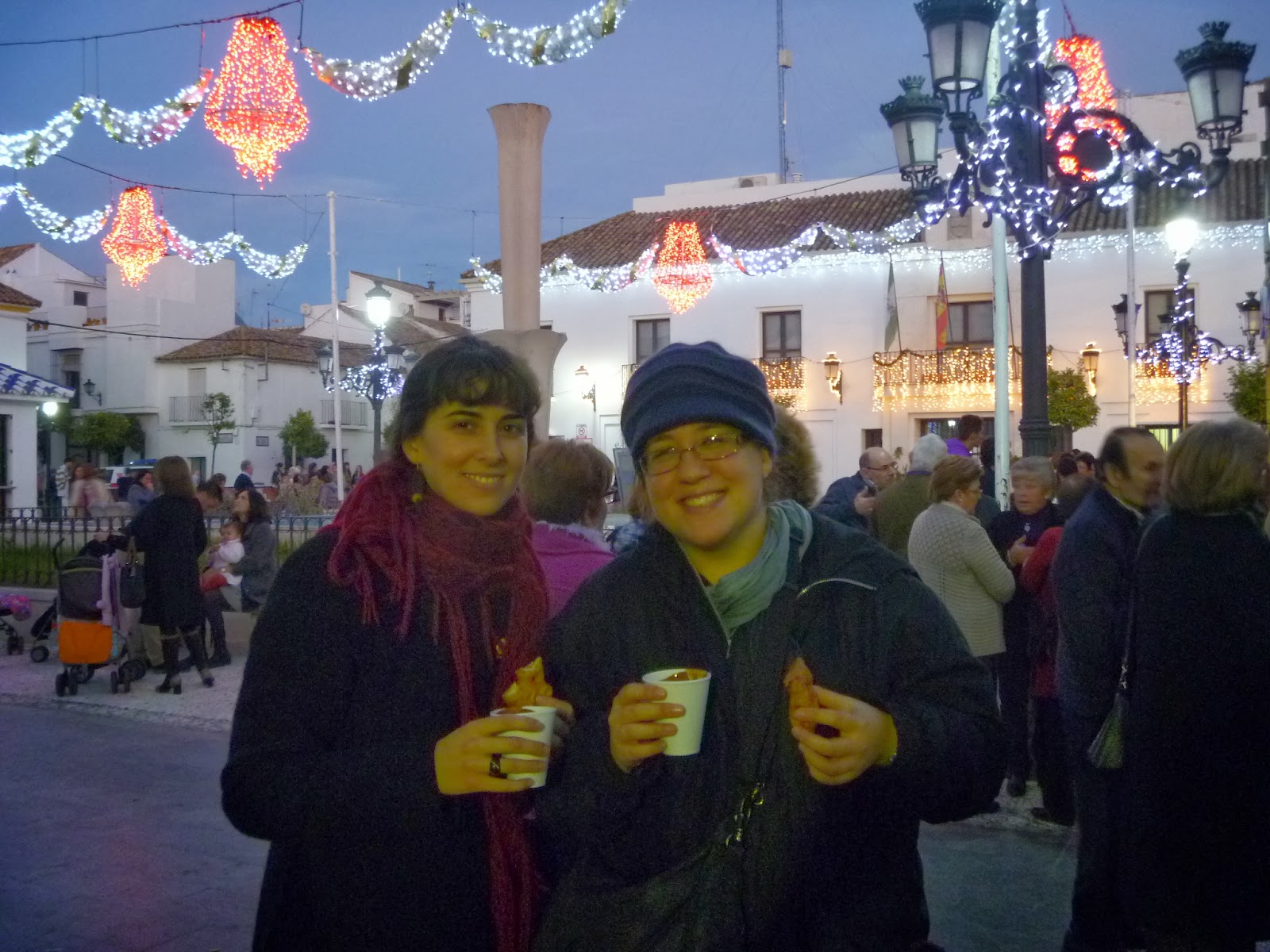Things have been so crazy around here that I forgot to tell everyone that I had a guest piece up a few weeks ago at the "Spain Scoop," which is one of my favorite English-language blogs here in Spain. (This is my second piece for them; long-time readers will remember that I wrote about a trip to Jaen last year, as well.) I'll post the beginning here; to see the rest, head over to their website!
True Manhood by Dodging Turnips--Move Over Viagra
- See more at: http://www.thespainscoop.com/festivals-spain-scoop/#sthash.NDzoB0fK.dpuf
To read more, click over to the Spain Scoop
- See more at: http://www.thespainscoop.com/festivals-spain-scoop/#sthash.NDzoB0fK.dpuf
- See more at: http://www.thespainscoop.com/festivals-spain-scoop/#sthash.NDzoB0fK.dpuf
True Manhood by Dodging Turnips--Move Over Viagra
Just
when one thinks they have heard of every wild festival in Spain,
another bizarre event is tossed to the forefront. About two and one
half hours, southwest of Madrid,
is the mountain village of Piornal. In snow laden streets, men are
chased by turnip throwing demons. Those who survive reasonably intact,
are newly virile. Move over Viagra. Our guest expert, Alissa
Greenberg, tells the truth on turnip tossing. - See more at:
http://www.thespainscoop.com/festivals-spain-scoop/#sthash.NDzoB0fK.dpuf
By Alissa Greenberg
The morning of Jarramplas dawned clear
and cold. It had snowed in the Sierra Gredos overnight, and
a wintry paradise of delicately-frosted trees and families building
snowmen greeted us as we approached Piornal, the highest
village in Extremadura. Despite its population of just 1500, every
year on January 19 and 20 Piornal hosts a festival that rivals the
adrenaline of Pamplona's running of the bulls and the happy chaos of
Tomatina in Valencia. We had come to investigate.
In the village, a festive atmosphere
permeated, with every bar overflowing and swarms of teenagers in
matching T-shirts running and shouting through the narrow alleyways.
All along the main street, houses were covered in protective boards
or netting. Turnips were piled in drifts along the sidewalk. Yes:
turnips.
The short-version explanation is that
each year five or six Piornalego men are tapped to act as
“Jarramplas.” One by one, each dons an elaborate, multi-colored
patchwork suit and horned helmet, then walks the streets of the
village as the entire community pursues him, throwing turnips. (To
prevent serious injuries, the suit and mask are reinforced with
fiberglass.) The longer version is not that much longer: no one knows
exactly where the tradition comes from, although prevailing wisdom
suggests it started centuries ago when a cattle thief plaguing the
village was punished with a bombardment of vegetables. These days,
playing Jarramplas is considered a great honor and test of manhood. A
waiting list stretches until 2030.
We arrived in Piornal's main square
just before 4 PM; people were streaming into the small, snowy plaza
from all directions. The church bells began to sound, and there was a
shout--“He’s coming! He’s coming!” A drumbeat sounded in the
distance, and then: complete chaos.
To read more, click over to the Spain Scoop
Just
when one thinks they have heard of every wild festival in Spain,
another bizarre event is tossed to the forefront. About two and one
half hours, southwest of Madrid,
is the mountain village of Piornal. In snow laden streets, men are
chased by turnip throwing demons. Those who survive reasonably intact,
are newly virile. Move over Viagra. Our guest expert, Alissa
Greenberg, tells the truth on turnip tossing. - See more at:
http://www.thespainscoop.com/festivals-spain-scoop/#sthash.NDzoB0fK.dpuf
Just
when one thinks they have heard of every wild festival in Spain,
another bizarre event is tossed to the forefront. About two and one
half hours, southwest of Madrid,
is the mountain village of Piornal. In snow laden streets, men are
chased by turnip throwing demons. Those who survive reasonably intact,
are newly virile. Move over Viagra. Our guest expert, Alissa
Greenberg, tells the truth on turnip tossing. - See more at:
http://www.thespainscoop.com/festivals-spain-scoop/#sthash.NDzoB0fK.dpuf






































True Manhood By Dodging Turnips – Move Over Viagra